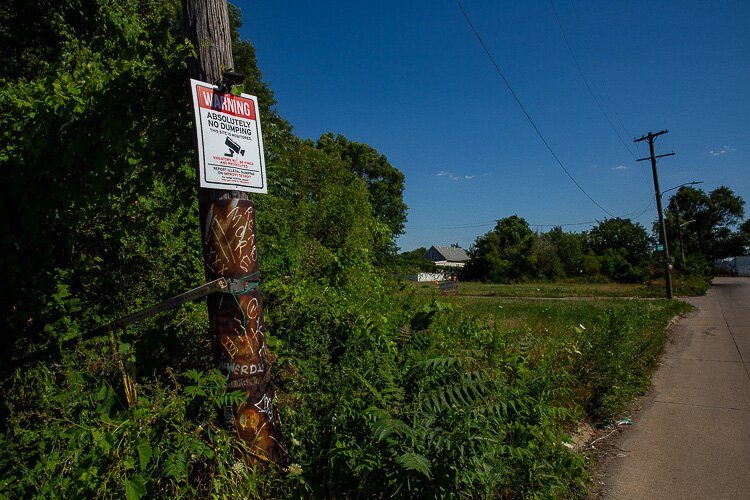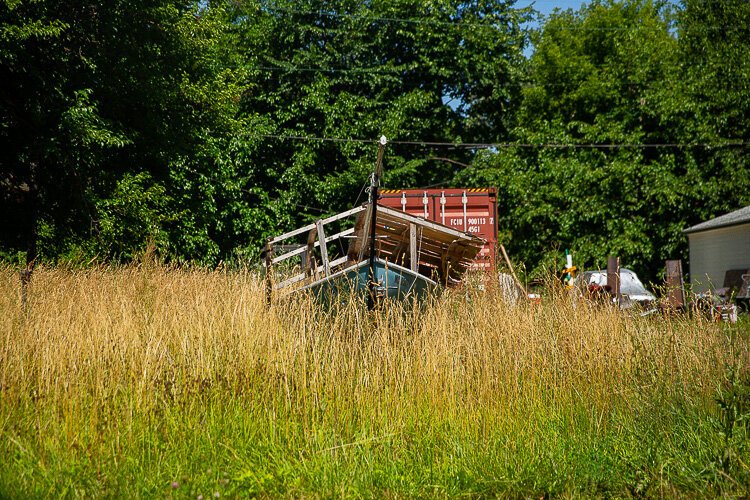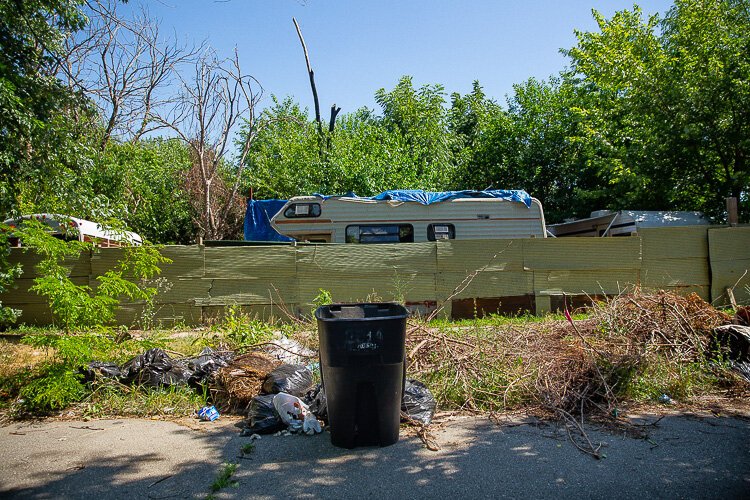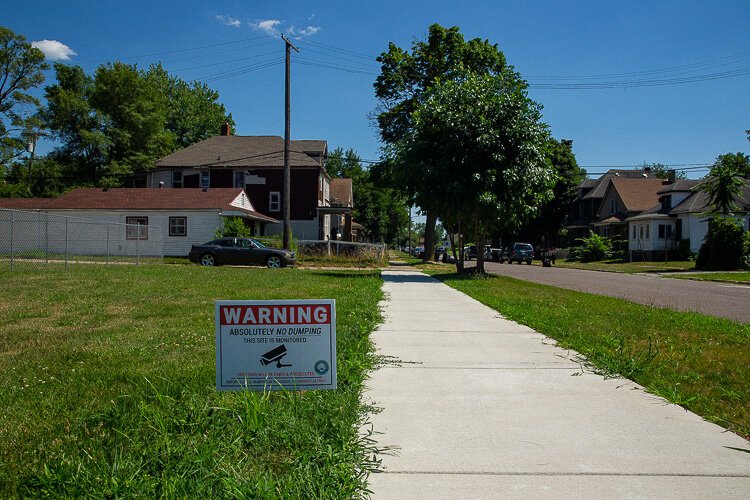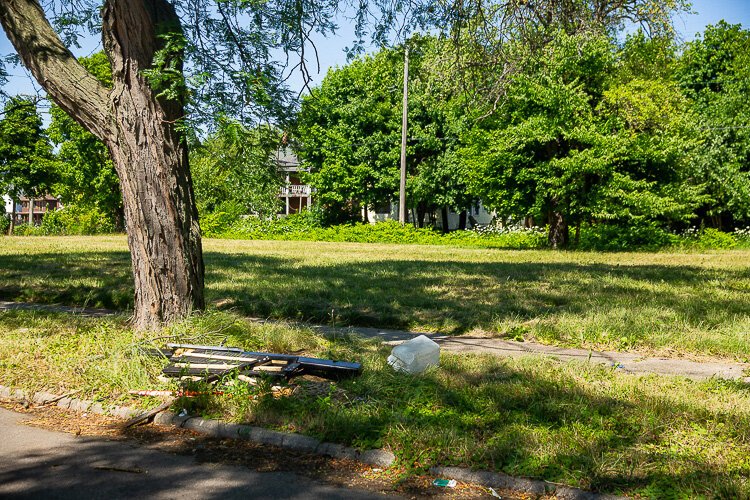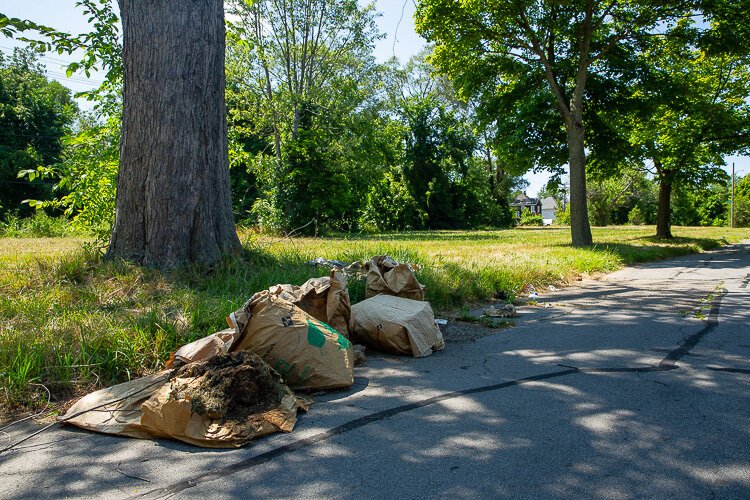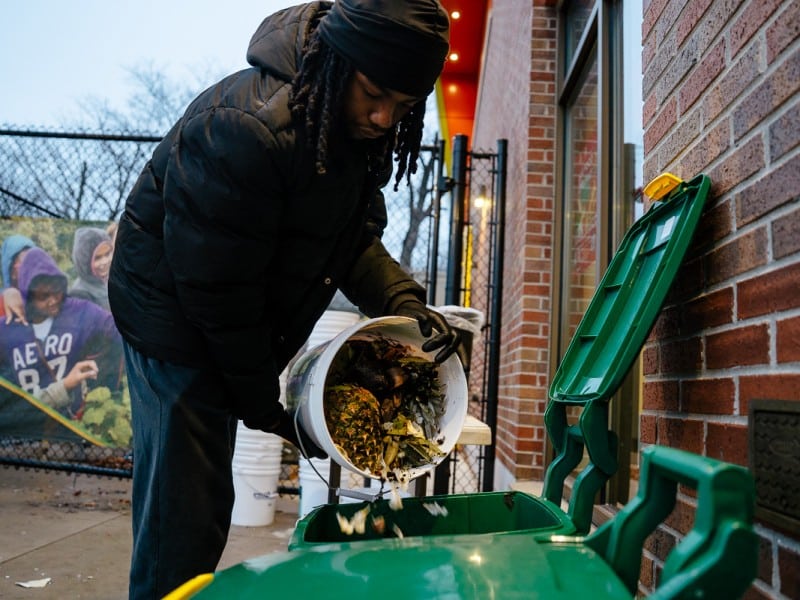Resilient Neighborhoods: East Side Detroit groups are taking a stand against illegal dumping
Illegal dumping is turning heads on Detroit's East Side. And neighborhood groups are working to address the situation.
Cutting through an alley, a stone’s throw from the historic homes of Detroit’s Pingree Park neighborhood, a stained mattress lies slumped among some loose debris. Up the block, residents say that it’s not unusual to find a truckload of concrete or other discarded building materials strewn across a vacant lot.
Several blocks north, however, at the intersection of Georgia Street and Vinton Avenue, there’s little trash to be found. Instead, visitors are likely to see raised bed
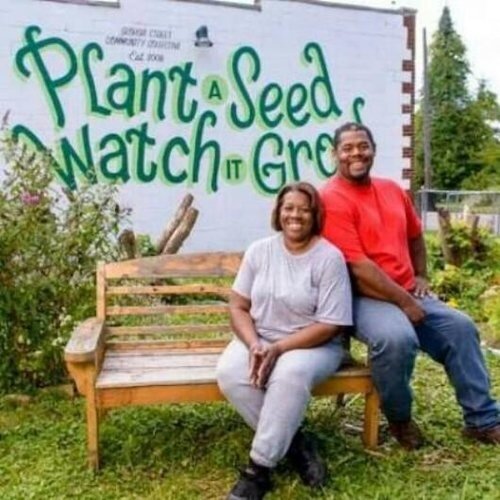
gardens full of vegetables and perhaps even some livestock like chickens. This part of the East Side is home to Georgia Street Community Collective, a farm and community resource center.
Mark Covington, the organization’s founder, used to see a great deal of illegal waste disposal in the area before the farm was established.
“We don’t have a major problem with illegal dumping, but we did before the farm and gardens,” he says. “People were dumping their garbage on the curbs of vacant lots. I believe when people see something not being used or taken care of that no one cares what’s done to it.”
East Side “backsliding”
Detroit’s East Side, with its more sparsely populated neighborhoods, experiences a great deal of illegal dumping. Illegal dumping in Detroit proper amounts to over 32,000 tons a year, according to Georgette C.R. Johnson, a City of Detroit press secretary. This mass of illicit debris is carted away by Detroit’s two private sanitation contractors: Waste Management and GFL.
However, on the East Side, residents and local non-profits hope to put an end to it.
Unfortunately, this problem only seems to be getting worse in recent years, according to Mac Farr, executive director of The Villages CDC, an East Side community development organization.
“Dumping has been an issue for a long time,” he says. “I think the city [had] made a lot of progress on this issue. And before the pandemic it was largely trending in the right direction”
However, with the onset of the pandemic in 2020, Farr observed “a bunch of backsliding,” especially when it comes to residential dumping. According to Janette Micelli, from Waste Management, the company has also seen an uptick of this kind of dumping.
“During the pandemic with more people staying at home, the volume of regular household debris and bulk items increased. We also saw an increase in out-of-compliance piles of bulk debris and untied brush,” she says. “We often find previously tagged items are moved to nearby vacant lots and abandoned homes.”
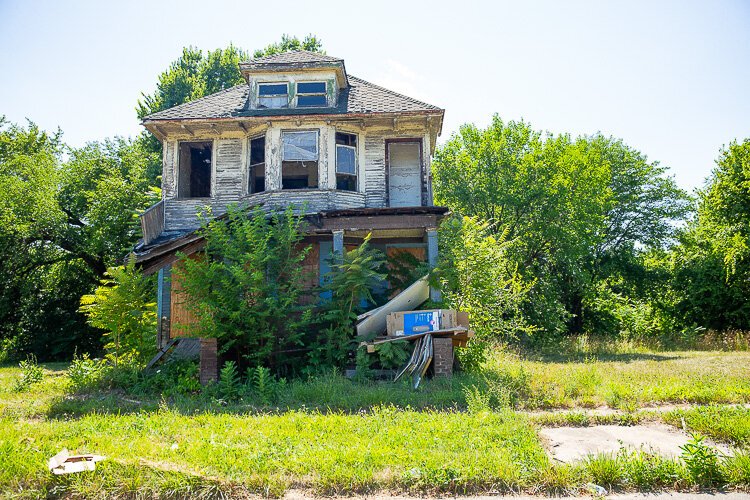
Residential vs. commercial dumping
Residential illegal dumping is not the only category of unlawfully dumped trash. Edythe Ford, Director of Community Engagement for MACC Development, an East Side nonprofit, states that contractor and building waste is also a big problem.
“One of the problems is we have a lot of developers and outside contractors

perform whole-house tear-outs,” says Ford, a resident of Pingree Park. “These contractors dump the waste from the tear-outs of houses onto vacant lots in the middle of the night.”
Johnson confirms that construction waste does indeed make up a large percentage of the illegally-dumped materials that must be disposed of by city sanitation contractors.
Linda Smith is the executive director of U-SNAP-BAC, an East Side nonprofit that works to improve access to quality housing stock in the community it serves. To improve the housing situation for residents of the East Side, U-SNAP-BAC has worked to financially empower residents by providing access to low and no-interest capital along with property tax assistance.
It has also been involved with anti-blight and neighborhood beautification efforts in its service zone, which is bounded roughly by Van Dyke Avenue, Detroit’s border with Grosse Pointe, Charlevoix Street and I-94. As important neighborhood placemakers, her organization is well aware of the bigger problems illegal dumping can create.
“Illegal dumping brings blight to the neighborhood. It looks like people don’t care. [This can] destroy a neighborhood,” she says.
Detroiters are now predominantly renters, rather than homeowners. According to 2018 study by RentCafe based on U.S. Census data, renters had become a majority of the Motor City’s population by 2016, occupying 52% of available housing units that year, compared to 44.3% in 2006. Ford believes this shift makes it residential dumping a much trickier issue to address.
“The landlords often don’t give them schedules as to when trash pick ups are. That’s a problem,” says Ford. “Just because many of us are poor, does not mean we don’t care about how the environment looks.”

Getting serious about illegal dumping
Both Ford and Farr have attempted to work with the city to create literature to help inform the citizenry of the rules surrounding proper disposal of waste.
“I have been trying to work with the city for a long time trying to get some residents’

rules and guidelines,” says Farr. “I sat down and drafted all the different things you could be cited for in Detroit regarding solid waste disposal. Unfortunately we haven’t been able to get the city to sign off on that document.”
Ford agrees. “We need something that people can put on their refrigerator so they know how to dispose of their trash,” she says.
Speaking for the city, however, Johnson maintains that work is being done on that front.
“We have a very strong interdepartmental education campaign against blight and illegal dumping on social media, billboards, radio, cable, and streaming, as well as our websites under the General Services Department; Buildings, Safety, Engineering, and Environmental Department; Department of Public Works; and Detroit Police Department.”
However Farr would have this type of literature go further. He envisions a document that compiles Detroit’s municipal regulations in one easy to access place, saying “[This document should cover] a whole slew of City regulations, from parking to dumping to dogs to fireworks to snow [removal].”
Illegal dumping in the city, and particularly on the East Side continues to be a problem, but groups like Georgia Street Community Collective and MACC Development continue to improve the state of their resilient neighborhoods. With coordination between non-profits, effective city policy, and a buy-in from the residents of the local neighborhoods, these advocates see a path to a cleaner and more livable city.
Clarification: This article has been updated to reflect Farr’s desire to see the publication of a document that lists city regulations for residents.
All photos by David Lewinski, unless otherwise noted.
Resilient Neighborhoods is a reporting and engagement series that examines how Detroit residents and community development organizations are working together to strengthen local neighborhoods. It’s made possible with funding from the Kresge Foundation.
